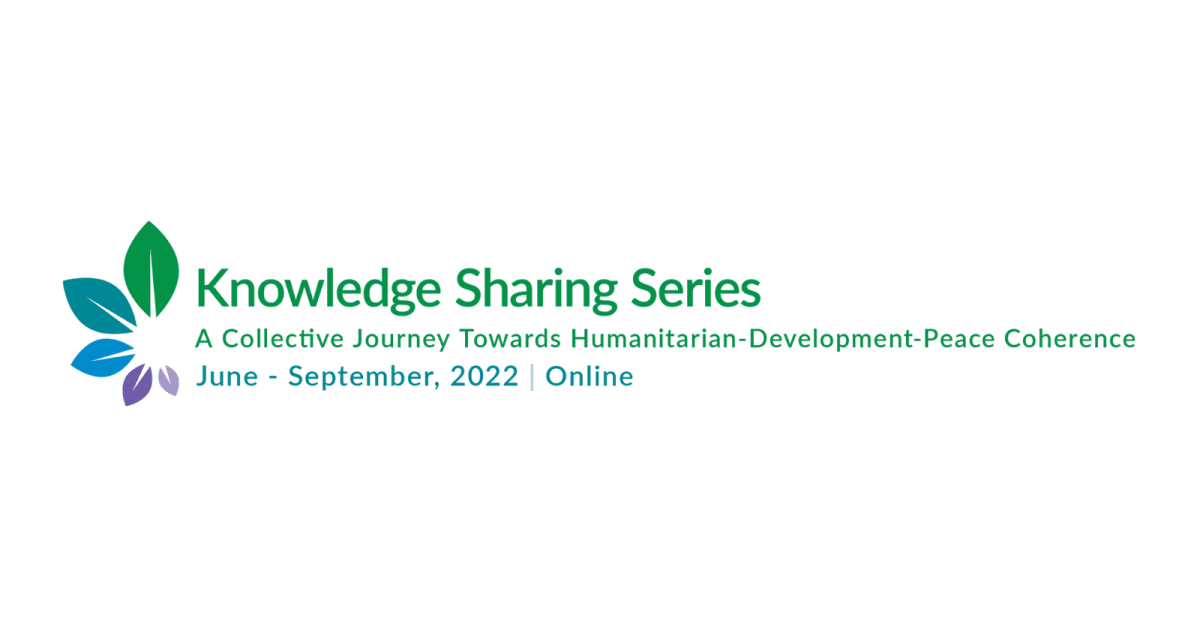A Collective Journey Towards Humanitarian-Development-Peace Coherence
In the face of globalized environmental challenges, the changing nature of violent conflict, and recognition of an increasingly complex and interdependent world, we need to move past siloed approaches to more holistic programming that better addresses the crises that slow or reverse progress on poverty alleviation and reduced food insecurity.
- Humanitarian programming can meet urgent needs in a crisis, while protecting development gains, and laying the foundation for longer-term resilience.
- Development and resilience programming can support shock-preparedness and early response to protect local systems and avert the worst effects of crises.
- Peace-building and, in particular, conflict sensitivity approaches can be embedded in humanitarian and development programming, and work not only to prevent violence and mitigate conflict but also to strengthen social cohesion.
To affirm and explore the opportunity for increased HDP coherence, and the challenges associated with achieving it, USAID engaged in extensive internal and partner consultations to develop a set of programming principles. The resulting document Programming Considerations for Humanitarian-Development-Peace Coherence: A Note for USAID’s Implementing Partners was released in January 2022.
The Knowledge Sharing Series (KSS) is the next step in our collective journey towards Humanitarian-Development-Peace (HDP) coherence. IDEAL will convene humanitarian and resilience practitioners for a peer-to-peer series of events, that will give the implementing community an opportunity to:
Create shared understanding around HDP coherence among humanitarian and resilience practitioners;
Explore current practices and enabling factors for HDP coherence in different contexts; and
Discuss and collectively problem-solve critical issues along with peers in similar contexts.

An opening week in June 2022 will feature events to level-set our collective knowledge around HDP coherence. Starting later in June and continuing through August, a week each month will be dedicated to each of the following four thematic areas:
The Knowledge Sharing Series will build up to a culmination event in September 2022. If you’d like to receive updates about the KSS, please click the button below!
Four thematic areas were informed by our consultations with implementing partners. Click on the titles below to learn more about each thematic area.
July 12-14, 2022
Working towards HDP coherence requires information systems that identify the key drivers of crisis in a location, analyze information about those drivers to inform contingency planning, and identify inflection points in key indicators to quickly and clearly trigger shock-responsive programming. Sessions under this thematic area will explore organizations’ experiences with context monitoring, resilience monitoring, crisis analytics and local early warning schemes to produce useful information for improved and more timely program decision-making in crisis-affected areas. We will discuss barriers to sharing this kind of information across humanitarian, development, and peace actors, and will consider the specific data and analytical tools required for more effective contingency planning for HDP coherence. Register and learn more about each session by clicking on the titles below! • July 12: Field-Based Monitoring Strategies for HDP Coherence • July 13: Using Humanitarian Evaluations for Development Programs in HDP Coherence • July 14: Data Requirements for HDP-Oriented Contingency Planning
Communication and Coordination for Coherence
August 2-4, 2022
A host of international and local organizations with a range of priorities, expertise, and programming timeframes implement programs in complex environments that are fraught with the effects of climate change and conflict, among other crises. When humanitarian and development assistance is coordinated, the needs of affected communities are more effectively addressed. Communication and coordination often happen ad hoc as crises unfold. However, experience at the country and regional level suggests that intentional facilitation through a variety of platforms and mechanisms is important and can improve outcomes for affected communities. In this thematic area, we will explore cross-organizational efforts to improve coordination and, ultimately, the effectiveness and coherence of different types of assistance. Sessions under this thematic area will explore promising practices in information-sharing to avoid duplicating efforts and to strengthen HDP coherence across donors; how backbone learning mechanisms have supported this work and what more can be done by such structures; and how donors and/or partners have addressed unmet needs of affected communities across the nexus as a result of effective coordination. Registration for this thematic area will open soon! Sign up here to receive updates about the KSS.
Sequencing, Layering, and Integrating Humanitarian, Development, and Peace Assistance
August 23-25, 2022
Sequencing, layering, and integration are the nuts and bolts of achieving HDP coherence. These tools for ‘joined-up programming’ are the principal approaches that practitioners use to operate in smart, responsive, and accountable ways across domains. Sessions under this thematic area will explore obstacles and the practical opportunities to carry out shared analysis, visioning, planning, and implementation of joined-up (coherent) programming. Sessions will examine how we can use humanitarian action to protect fragile development and resilience gains during periods of crisis and how development investments can build resilience to, and preparedness for shocks and crises.
Registration for this thematic area will open soon! Sign up here to receive updates about the KSS.

